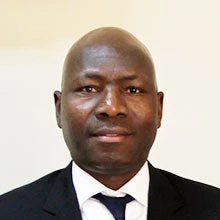 Forest of the Congo Basin. Credit: David Maleki / World Bank (DR).
Forest of the Congo Basin. Credit: David Maleki / World Bank (DR).
The Congo Basin’s forests are vital for sustaining livelihoods, supporting economic activities, and combating climate change.
The demands of a growing population on the continent continue to increase the pressure on these forests but also present an opportunity for job creation and economic transformation. However, sustainable forest management requires substantial resources that are difficult to mobilize. The challenge is to identify ways to make funding accessible and balance the need to preserve biodiversity with local development.
In the Republic of Congo, the question is: how can the “lungs” of Africa deliver economic dividends to its people and countries?
The Congo Basin: A Local Lifeline and Global Carbon Sink
The Congo Basin forests are a lifeline for millions of people in the region who depend on them for food, energy, shelter and livelihoods. It is also the world’s largest carbon sink, playing a vital role in regulating the global carbon cycle and housing an extraordinary range of biodiversity, much of which is still undiscovered. Disturbance of these forests—particularly the vast peatlands—could release millions of tons of carbon dioxide, further worsening the global climate crisis.
Keeping these forests healthy and intact is no small task. Spanning across multiple countries and millions of square kilometers, the preservation of the Congo Basin’s forests requires regional cooperation, strategic partnerships, and unprecedented levels of funding. No single country can do it alone.
A Global Response to a Global Challenge
Recognizing the scale of this challenge, the World Bank is stepping up its support through The Global Challenge Program: Forests for Development, Climate, and Biodiversity. This ambitious initiative aims to expand sustainable forest landscapes to drive economic growth, mitigate climate change, and preserve biodiversity.
In Western and Central Africa, a regional program is being developed to cover five key Congo Basin countries: Cameroon, Republic of Congo, Democratic Republic of Congo, Gabon, and the Central African Republic. It will focus on scaling up sustainable forest management, developing forest-based value chains, creating jobs, and providing essential services to vulnerable forest communities. This regional effort will also enhance the protection of transboundary protected areas and amplify the voices of Congo Basin nations in global climate discussions.
By increasing knowledge sharing and harmonizing regional forest policies, the program represents a collaborative approach to a global problem—one that recognizes the interdependence of forests, climate, and human livelihoods. Through these efforts, the Congo Basin can become a model for sustainable development and climate resilience, ensuring that both the planet and its people can thrive.
To learn more about what the Republic of Congo is doing to unlock the economic and ecological benefits from its forests and secure a sustainable future, watch the conversation between Minister Rosalie Matondo from the Republic of Congo and World bank Country Director Cheick Kante.



Join the Conversation